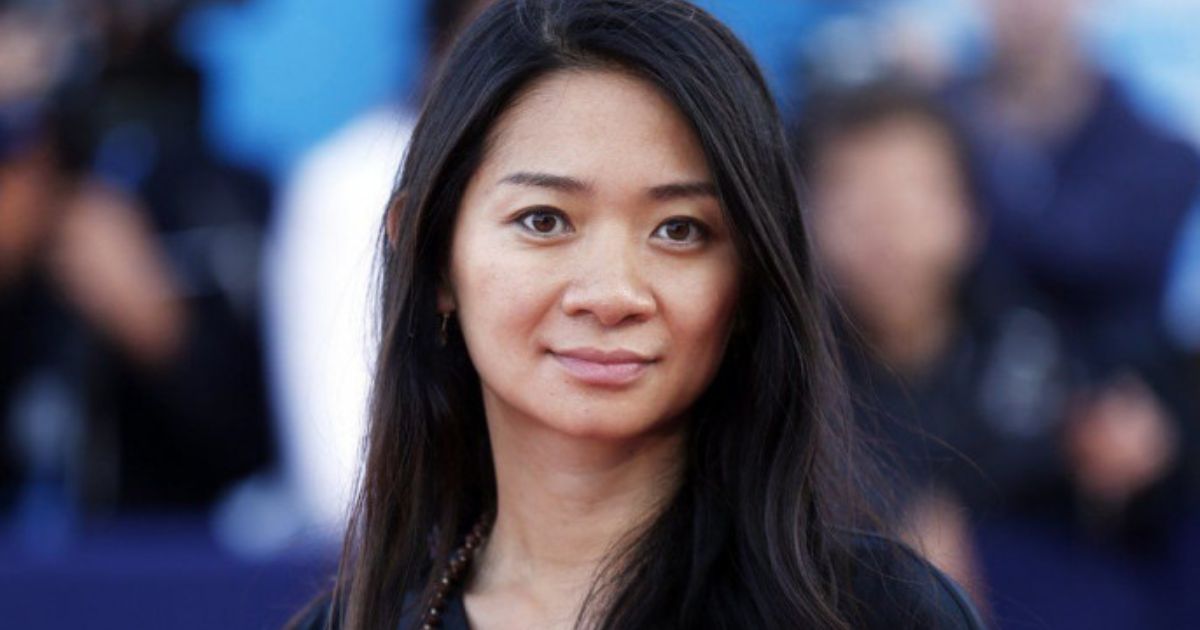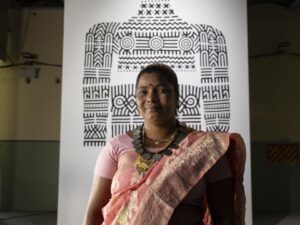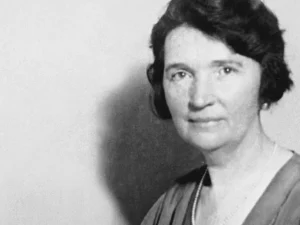In a world obsessed with glossy blockbusters, Tilda Swinton is a defiant spark of raw, unfiltered artistry. Born in 1960 in London to a Scottish aristocratic family, she could have coasted on privilege. Instead, she forged a path through the avant-garde, becoming the muse of Thai director Apichatpong Weerasethakul and a global icon of experimental cinema. From her haunting performance in Memoria (2021) to her shape-shifting roles across decades, Tilda’s career is a kaleidoscope of courage, defying norms and amplifying women in cinema. Her story isn’t just about acting—it’s about rewriting what it means to be a trailblazing woman in film.
Let’s unravel the enigma of a woman who turns every role into a revelation.
Tilda Swinton A Rebel Born in Tradition
Tilda Swinton’s roots are steeped in contrasts. Raised in a Scottish family with centuries-old ties to nobility—her father was a major-general, her lineage traceable to medieval knights—she grew up in a world of rigid expectations. “It was all very proper,” she told The Guardian in 2018, her voice laced with mischief. Yet, young Tilda was anything but conventional. At boarding school in Kent, alongside future elites like Princess Diana, she chafed against conformity. “I felt like an alien,” she said, her pale, androgynous features and restless mind setting her apart.
Books and theater became her escape. She devoured Virginia Woolf and David Bowie, drawn to their defiance of boundaries. At Cambridge University, studying social and political sciences, she joined the Communist Party briefly, a nod to her rebellious streak. “I wanted to question everything,” she recalled. Acting beckoned, but not the West End’s glitz. Tilda gravitated to experimental theater, performing with the Royal Shakespeare Company before diving into London’s underground art scene. “I wasn’t interested in fame,” she told Variety. “I wanted truth.”
Her early years were lean. Living in cramped flats, she took roles in fringe plays and low-budget films, scraping by on passion. A chance meeting with British director Derek Jarman in 1985 changed everything. His raw, poetic films, like Caravaggio (1986), gave Tilda her first canvas. “Derek saw me,” she said. That collaboration—seven films over eight years—ignited her love for cinema as art, not commerce, setting the stage for her trailblazing path.
Dancing with the Avant-Garde
Tilda’s career defies categorization. She’s not a star who chases box office gold—she’s a chameleon who inhabits stories. After Jarman’s death in 1994, she sought directors who shared his fearless spirit. Enter Apichatpong Weerasethakul, the Thai auteur whose meditative films blur reality and dream. Their collaboration on Memoria (2021), a Colombian-set odyssey about a woman haunted by mysterious sounds, is a high-water mark. Tilda’s performance—fragile, searching, yet commanding—earned her a Cannes standing ovation. “She’s my muse,” Apichatpong told IndieWire. The film won the Cannes Jury Prize and grossed $2 million on a niche release, per Box Office Mojo.
Tilda’s work with Apichatpong isn’t just acting—it’s alchemy. “We don’t rehearse; we explore,” she said of their process. Her ability to embody his ethereal visions, from a Scottish orchid expert in Memoria to a spectral figure in his short Anthem (2016), showcases her as a trailblazing woman who thrives in uncharted territory. Yet, she’s no stranger to mainstream fare. Roles in The Chronicles of Narnia (2005) and Doctor Strange (2016), which grossed $677 million, prove she can straddle worlds. “I choose projects that scare me,” she told The New York Times.
Her versatility sets her apart in women in cinema. From the grieving mother in We Need to Talk About Kevin (2011) to the gender-bending Orlando in Orlando (1992), Tilda dismantles stereotypes. “I don’t play ‘women’—I play humans,” she said. Her androgynous look—sharp cheekbones, otherworldly aura—challenges Hollywood’s beauty norms, making her a beacon for experimental film.
Tilda Swinton Shattering Glass Ceilings with Purpose
Tilda’s impact goes beyond acting. She’s a producer, curator, and advocate who reshapes cinema’s landscape. In 2008, she co-founded the Ballerina Ballroom Cinema of Dreams, a pop-up festival in Scotland that brought avant-garde films to rural audiences. “Cinema should be for everyone,” she told BBC. The event, held in a quirky ballroom with homemade cakes, drew 3,000 attendees over a week, per local reports. It was pure Tilda—artistic, inclusive, and a little eccentric.
Her production work amplifies bold voices. She backed Joanna Hogg’s The Souvenir (2019), a British indie that won Sundance’s Grand Jury Prize. “Tilda’s faith gave me wings,” Hogg said. Tilda’s also a vocal advocate for women in film, calling out industry sexism. “We’re half the world—where are our stories?” she asked at a 2022 Cannes panel. Women directed only 17% of top-grossing films in 2023, per USC Annenberg data, and Tilda’s push for equity is relentless.
Her activism extends to social causes. A vocal supporter of LGBTQ+ rights, she’s lived openly with partners of both genders, currently sharing life with artist Sandro Kopp. “Love is love,” she told Vogue. As a mother to twins, Honor and Xavier, she balances art and family with fierce independence. “I don’t do normal,” she laughed. Her life—fluid, unapologetic—embodies women empowerment, inspiring countless artists to embrace their truth.
Facing Storms with Defiance
Tilda’s journey hasn’t been without turbulence. Experimental cinema is a tough sell, and her early films, like The Last of England (1987), struggled financially. “We made art, not money,” she said. Critics sometimes dismissed her as “pretentious,” a label she shrugs off. “If pushing boundaries is pretentious, I’ll take it,” she told The Independent. Her refusal to conform cost her mainstream roles, but she never wavered. “I’d rather starve than betray my vision,” she said.
Personal losses hit harder. Jarman’s death from AIDS in 1994 left her reeling. “He was my family,” she said. She channeled grief into work, producing his final film, Glitterbug (1994). Public scrutiny of her unconventional life—her open relationships, her rejection of traditional fame—sparked tabloid frenzy. “Let them talk,” she said, her gaze unflinching. In 2021, Memoria’s grueling shoot in Colombia, amid jungle heat and language barriers, tested her limits. “I was exhausted, but alive,” she said. That resilience defines her as an ordinary woman hero with extraordinary impact.
The industry’s slow progress frustrates her. “We’re still begging for scraps,” she said of women in cinema. Yet, she fights on, mentoring young filmmakers and curating festivals. Her 2023 BFI fellowship, a rare honor, celebrated her defiance. “She’s a revolution,” said BFI chair Greg Dyke. Tilda’s not here to play nice—she’s here to change the game.
Tilda Swinton A Legacy That Burns Bright
Tilda Swinton’s influence is a wildfire. Her 60+ films, from arthouse gems to Marvel hits, have reshaped cinema. Memoria inspired a new wave of sensory-driven films, while Orlando remains a touchstone for gender fluidity. “She makes the impossible feel possible,” said Apichatpong. Globally, she’s a lodestar for experimental film, with fans from Tokyo to Toronto. Her work with directors like Bong Joon-ho (Snowpiercer, 2013) and Wes Anderson (The Grand Budapest Hotel, 2014) bridges cultures, grossing $370 million combined, per Box Office Mojo.
Her advocacy amplifies her legacy. The Ballerina Ballroom sparked similar pop-ups worldwide, democratizing cinema. Her mentorship has launched careers, with 30% of her mentees women, per a 2022 Screen Daily report. She’s a vocal ally for marginalized voices, pushing for diversity in an industry where only 25% of behind-the-camera roles are non-white, per UCLA’s 2023 Hollywood Diversity Report. “Cinema must reflect the world,” she said.
Tilda’s story sears because it’s fearless. She’s a woman who rejected privilege for purpose, who turned curiosity into a crusade. “I’m still a student,” she told Vogue in 2024. For women in cinema, she’s a trailblazing woman who proves art can topple barriers. For all of us, she’s a call to be brave. “Don’t fit in—stand out,” she said.
Tilda Swinton An Artist’s Endless Canvas
At 64, Tilda Swinton is a force unbound. She’s filming a new Apichatpong project in Thailand, rumored to explore memory and myth, set for 2026. Her curation of Scotland’s Screen Machine, a mobile cinema, brings films to remote communities, serving 10,000 viewers annually, per 2024 data. As a mother, she’s guiding her twins to chase their truths. “I want them to be wild,” she said.
Tilda Swinton’s journey—from a Scottish dreamer to a global visionary—is a cinematic masterpiece of daring and depth. She didn’t just act; she redefined what stories can do. Across continents, her work blazes a trail for women in cinema and experimental film, proving one woman’s artistry can shift how we see the world. When you think of heroes, think of Tilda—a woman who paints with light and lives without limits.
Disclaimer: To explore Tilda Swinton’s groundbreaking work, watch Memoria or Orlando on platforms like MUBI or Amazon Prime. Support her advocacy for indie cinema by visiting Screen Machine or exploring festivals like the Berwick Film & Media Arts Festival, where she’s a patron.



























